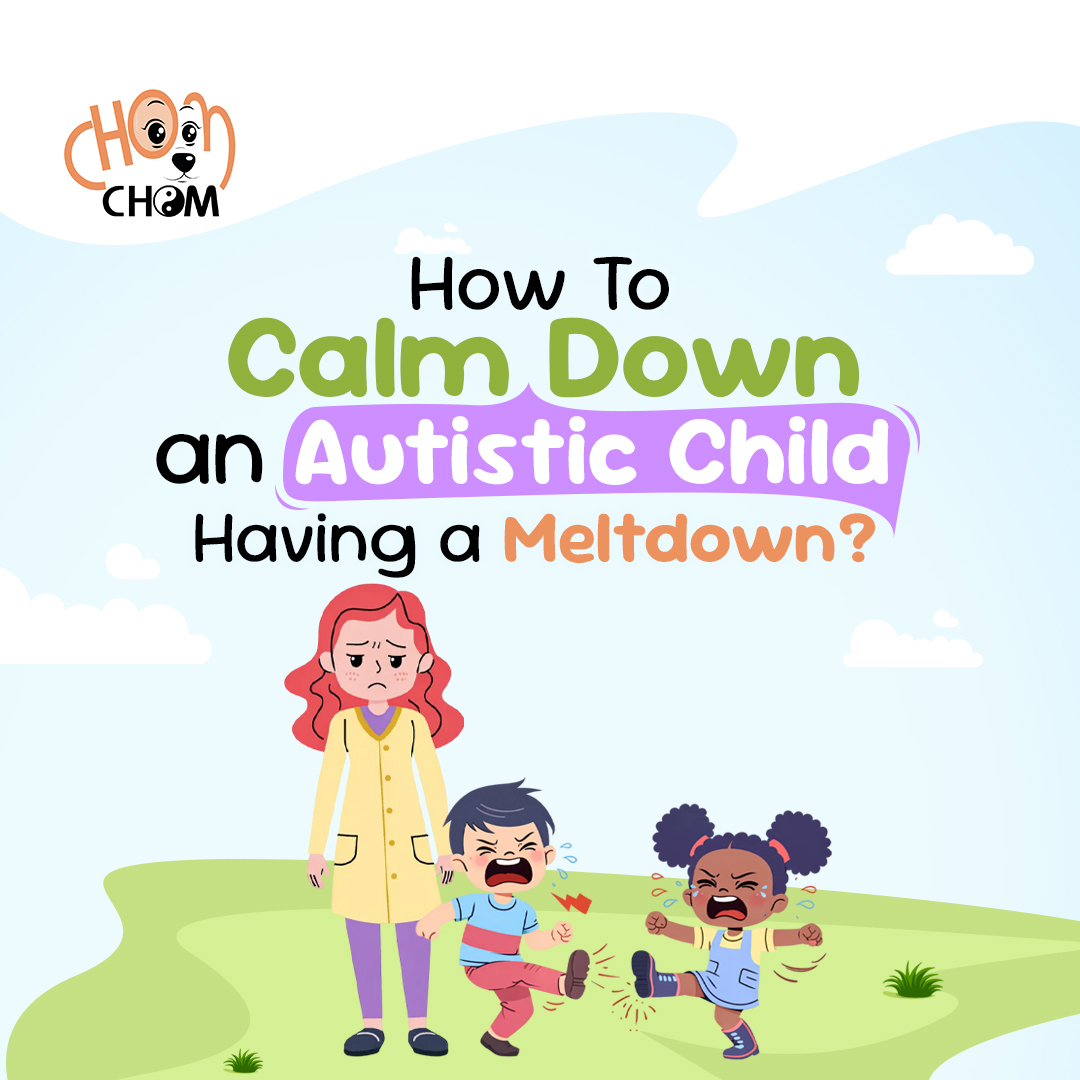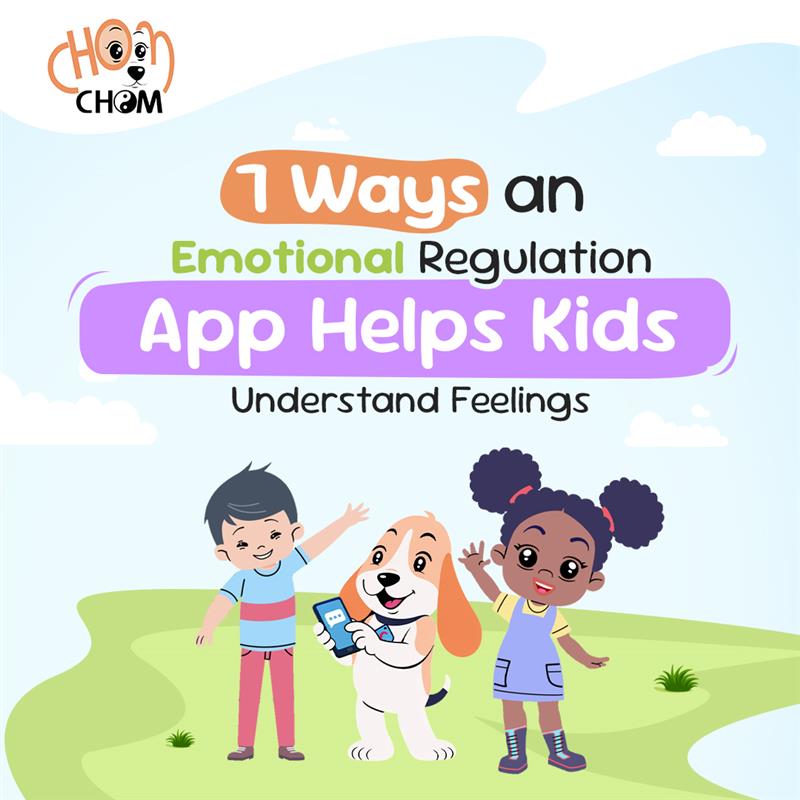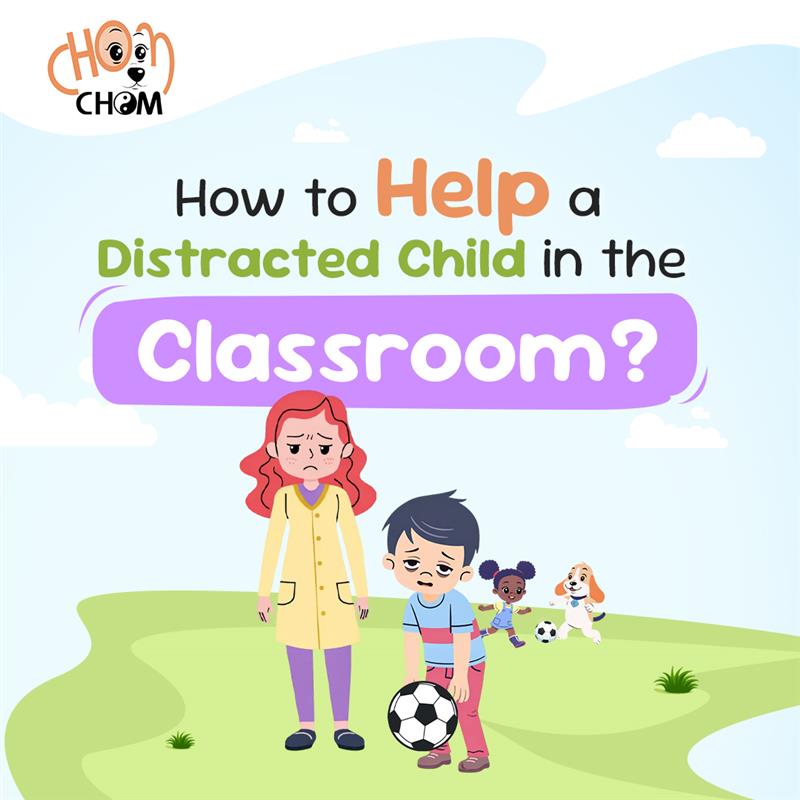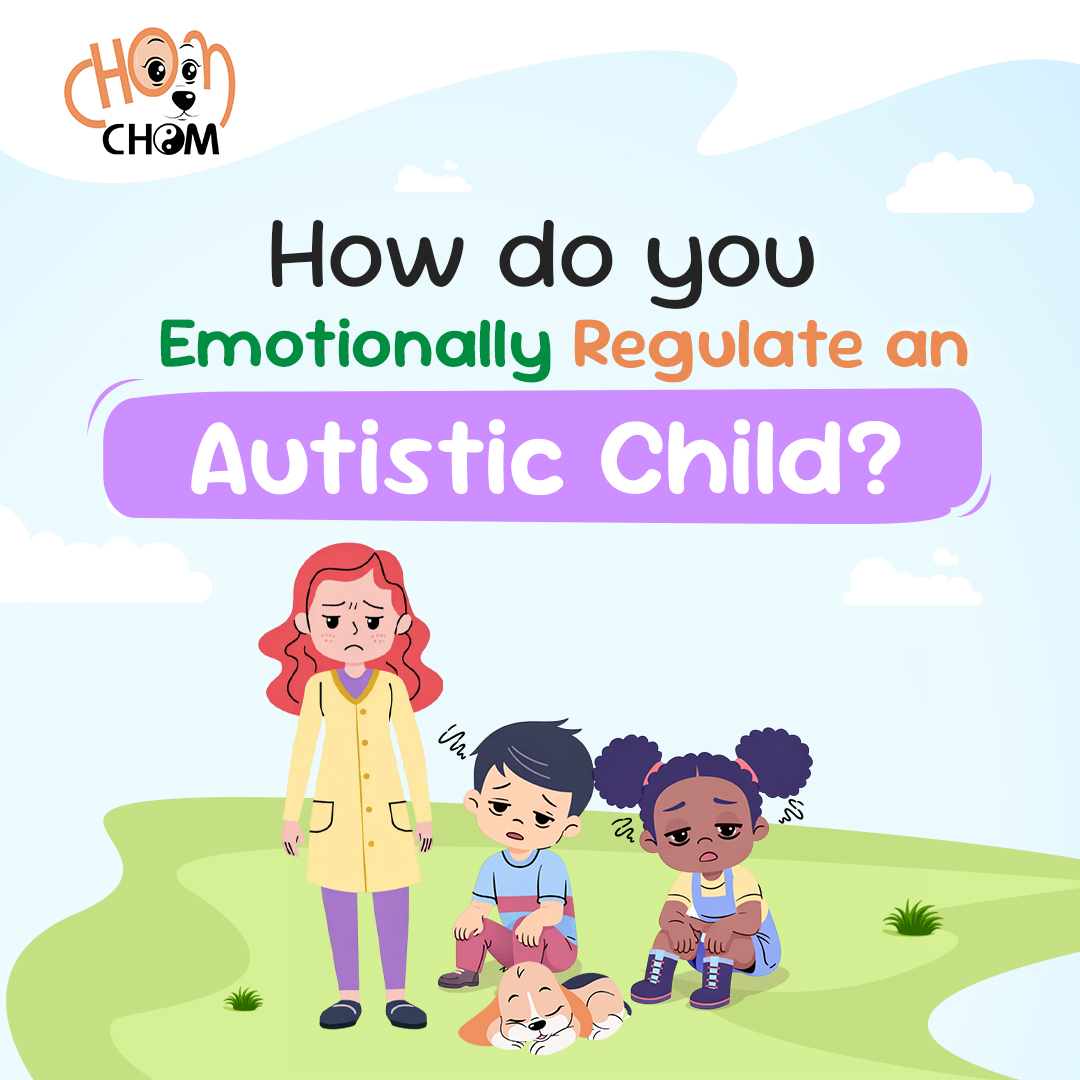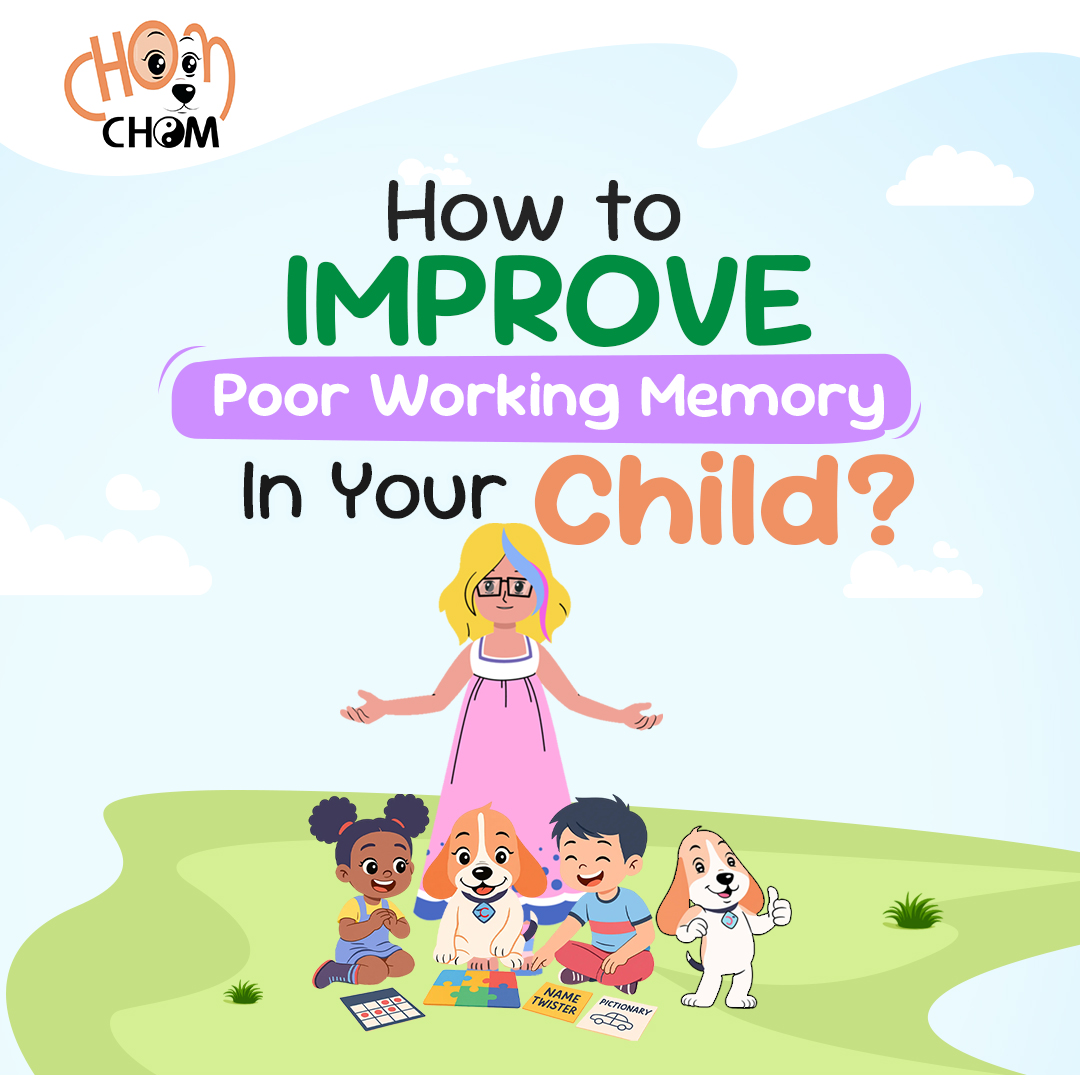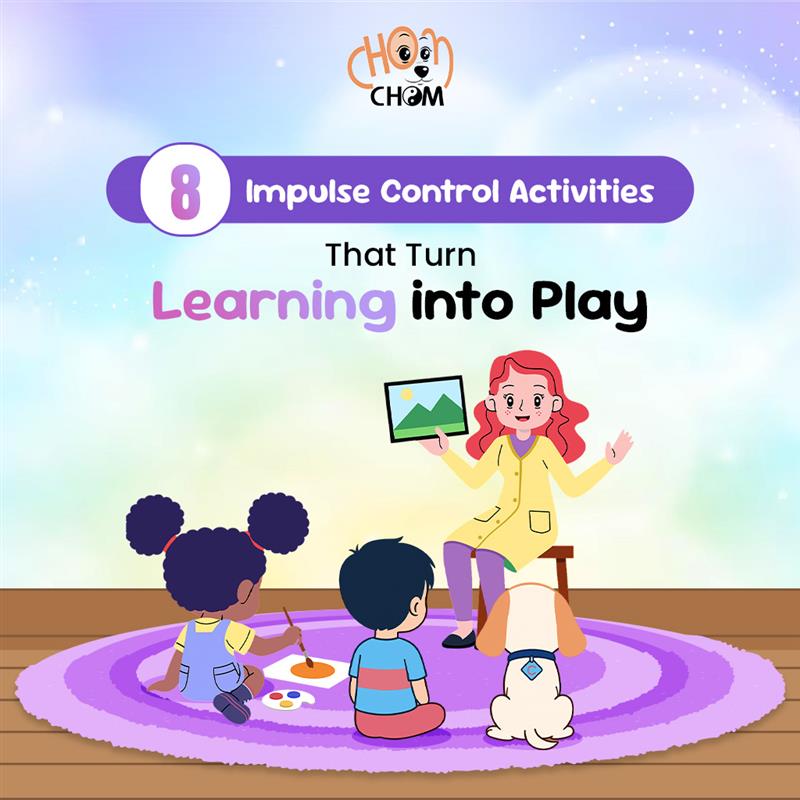
Dealing with a child can be challenging, especially when they are filled with excitement. Generally, kids act on their impulses, which can be problematic when left unattended.
Learning impulse control is crucial for a child’s development, helping them make thoughtful decisions. Developing activities to teach impulse control is a powerful way to guide children toward better self-regulation.
Learning these skills doesn’t have to be monotonous; this is where engaging and creative activities come into play. Teaching the kids impulse control through fun games allows them to enjoy better mental and emotional health.
Research shows that children who learn self-control development skills live healthier and more stable lives.
This blog will explore different activities to improve impulse control for kids and its benefits. We will further discuss the significance of implementing these impulsive behavior activities for children.
Start reading and learn how to turn teaching into extraordinary adventures.
What is Impulsivity?
Impulsivity is the inclination to act spontaneously without thinking about the consequences. It is not about being disrespectful or lack of self-discipline. It is a behavioral pattern originating in the brain.
For example, you can impulsively say something or dash across the path without checking.
Impulsive things to do (Impulsive actions) are typical, especially in children or adolescents. They behave impulsively due to the consistent development of their brains. It is associated with specific conditions depending on the situation.
Impulsivity is broadly defined as a tendency to act on one’s whims. It presents behavior characterized by minimal or no deliberation, thoughtfulness, or outcomes.
It portrays different behaviors, like trouble controlling unsuitable actions and struggles with postponing gratification. It also shows a lack of awareness regarding delayed repercussions.
What are the Signs of Impulsivity in Kids?
Impulse control in preschoolers appears to be challenging. It is crucial to recognize this behavior change in children. The brain’s prefrontal cortex governs impulse control, and it is the final area to develop. Ongoing support and organized impulse control exercises for children are essential to address their impulsive actions effectively.
Over time, these enjoyable activities help your child manage their impulses and enhance self-control.
Self-control is a component of cognitive abilities known as executive function. Self-discipline encompasses various elements, including impulse regulation for overall responses and emotional regulation.
It helps handle emotions and regulate movement, checking when and how the body moves. When kids possess strong impulse control, they develop the ability to implement a sense of control.
They learn how to do the following –
- Pause before reacting too quickly or aggressively
- Stay focused and resist distractions
- Stop themselves when they are doing something ineffective or wrong
- Wait for rewards
- Listen
- Follow the rules and instructions
- Waiting their turn
- Avoid delays
What is Impulse Control for Children?
Impulse control is crucial for achieving success in education, forming relationships, and maintaining well-being. Studies indicate that children with stronger impulses achieve higher academic achievement and even have improved social interactions.
Impulse control helps children resist distractions, efficiently manage time, and make proper decisions. It also leads to healthier connections and enhanced emotional strength.
Kids with trouble managing impulses have difficulty maintaining focus, following directions, or finishing tasks. This results in feelings of frustration and low self-esteem. Expert assistance enhances their impulse control abilities, boosting self-confidence.
A child’s capacity to control impulsive actions impacts their general growth. Effective impulse control in children can result in multiple benefits. It encourages kids to reflect before acting, make wiser choices, and avoid impulsive actions.
Teaching a child to manage impulsive actions is critical as a parent or teacher. It improves their emotional intelligence, nurturing empathy, patience, and ability to handle difficulties.
Impulse control will influence your child’s development to become a thoughtful and balanced person.
Impulse control usually emphasizes developing self-regulation, including:
- Avoiding the expression of every negative thought that arises.
- Implementing coping mechanisms rather than expressing anger through physical actions
- Lifting your hand to talk in a classroom
- Allowing others to finish speaking without interruption
- Inquiring if you can participate in an activity or a game rather than be forced into it
- Waiting in line without pushing other children
- Requesting to use a toy instead of grabbing it
- Waiting for instructions before taking any action
- Focus on long-term goals rather than get distracted.
Benefits of Impulse Control Activities for Kids
Engaging in these fun and interactive exercises helps develop self-regulation skills. It also enhances emotional intelligence, social interactions, and academic performance. With impulse control activities, children learn to navigate their emotions, make thoughtful decisions, and maintain focus in challenging situations.
Let us look at the benefits of impulse control activities for preschoolers –
Enhanced Emotional Intelligence
Activities focused on impulse control improve children’s safety, social abilities, academic success, and emotional health. These activities teach children to think before acting, avoid distractions, and regulate their feelings. This leads to improved decision-making, healthier relationships, and enhanced overall growth.
Physical Health Benefits
Self-discipline impacts the level of self-care a person gives to themselves. Every child must consume healthy meals regularly, engage in physical activity, and ensure adequate sleep. It reduces inflammation, obesity, and dependence on substances.
Improved Executive Functioning
Self-control is a key executive function skill that helps children regulate their thoughts, feelings, and behaviors. Learning and developing these abilities enables children to manage distractions and participate in constructive actions. It also helps them handle obstacles with ease and confidence. Executive functioning is vital for children experiencing focus or hyperfocus difficulties, such as those with OCD or ADHD.
Better Social Interactions and Friendships
Programs focused on social skills help children with different health issues. It enhances verbal and nonverbal communication skills. By engaging in impulse control activities, children acquire the skills to:
- Start discussions appropriately.
- Comprehend eye contact and facial expressions.
- Understand and respond to verbal and nonverbal cues.
These enhancements boost their capacity to channel their thoughts and comprehend others, creating opportunities for stronger interpersonal relationships.
Increased Attention Span and Focus
Participating in impulse control exercises helps kids enhance their capacity to focus on a task for extended durations. Engaging in structured games and activities promotes patience and self-control. It helps children discover how to increase their focus and reduce interruptions. This enhancement in concentration supports their everyday tasks and boosts their capacity to retain necessary information.
Greater Academic Success and Classroom Behavior
Kids who develop impulse control mostly achieve greater success in school environments. Learning to deal with their impulses makes them better prepared to start their school journey. They will follow directions, engage in conversations, and finish tasks promptly. This results in better classroom conduct, creating a supportive learning atmosphere. It helps them develop a healthy environment with their classmates and boost academic grades.
Development Of Patience And Delayed Gratification
Games for impulse control require players to wait for their turn and strive towards a goal. It helps kids learn the importance of patience. This exercise teaches children that being patient for any activity can turn exciting and fulfilling, promoting delayed gratification.
Improved self-esteem and confidence
When children learn to control their impulses, they experience increased self-esteem. Effectively managing difficult situations that could normally trigger impulsive behavior strengthens their self-belief abilities. These activities provide them with an understanding that they can manage their responses well. It enables them to behave well, aids in social situations, and fosters confidence to confront and overcome challenges. It enhances the personal development of your little one.
Practical Impulse Control Activities for Kids
Teaching children effective impulse control is vital in today’s world. Implementing impulse control activities helps manage behaviors and foster essential life skills such as patience, responsibility, and resilience.
Children can learn to think before acting, consider different options, and respond thoughtfully to various situations.
If you are wondering how to stop toddler tantrums & meltdowns fast, you can engage your child in impulse control activities. Let us explore them –
1. Role-playing and Social Scenarios
Role-playing and social situations serve as effective impulse control games for kids. They allow kids to play multiple roles and understand the effects of impulsivity in diverse conditions. They also help them observe how others manage their impulses.
How to play:
- Children might encounter everyday social situations, such as waiting for their turn and sharing toys.
- Encourage them to express their feelings and thoughts during the role-play to deepen their understanding of the situation.
- After the role-play, gather the children to discuss what happened.
2. The Waiting Game
The waiting game serves as an impactful activity for impulse control. In this game, you ask a question to a child, but they must wait for at least 5 seconds before responding. This helps them learn how to manage impulsivity and always think before reacting. This game can be especially effective for children with specific behavioral challenges.
How to play this game:
- Create some interesting questions and have two children compete against each other while the others observe.
- Ask the question, and instruct each child to count to five before responding.
- The winner is the child who answers correctly after the five-second timer.
3. Collaborative Art and Color
Collaborating on an artwork helps children make their own decisions. It encourages them to understand how various elements enhance each other. It also instructs them on restraint, as they must determine how much or how little to include.
How to conduct this:
- Choose the form of art you wish to explore
- Let every child vote, and then they can create a mural, sculpture, or mixed-media figure.
- Supply the children with the necessary art materials.
- Help each child put their input to the piece individually or collaborates on specific elements.
- Once the artwork is complete, discuss how every child felt about the process.
4. Practice Mindfulness
Deep breathing, meditation, and yoga effectively encourage impulse control. These activities develop mindfulness, helping children become more conscious of their feelings and thoughts.
It includes implementing easy breathing exercises and relaxation methods into everyday activities. These help your children soothe their minds and bodies, minimize impulsivity, and boost self-regulation.
Yoga also helps increase focus, balance, and body awareness. Practicing these activities helps build emotional resilience and improve children’s decision-making skills.
5. Orchestra
Every member of an orchestra must work together to produce beautiful musical compositions. Engaging in this activity helps children learn to follow the rhythm, pay attention, and adapt to the dynamics of music.
Here’s how to do it:
- Gather a varied collection of simple instruments.
- Start with a simple beat and ask each child to join after every count of four or eight.
- Change up the beat and see how each child reacts.
6. Freeze and Focus
One of the initial impulse control techniques for children is to freeze and focus. A freeze game helps kids develop concentration while dancing.
For example, an adult can present a picture of a stick figure in a particular position, such as a certain dance move, and children concentrate on what they see while listening to music.
Once the music stops, they freeze and assume the pose displayed on the sign or the sheet of paper.
Self-control activities help kids remember what position they were supposed to take when the music stopped playing.
7. Emotion Regulation Through Games
Remember that emotional intelligence and impulse control are closely connected. The game of emotion charades helps kids connect with their feelings. It involves using facial expressions and body language.
Establishing a secure and pleasant environment to understand emotions is a form of exposure and response prevention.
It helps children feel more at ease with intense or frightening feelings. These sudden feelings provoke particular impulses.
Here’s how to play:
- Write down various emotions and feelings on sticky notes or paper and put them in a bowl.
- Take turns, pick a paper slip, and act on the feelings.
- Once any child guesses the emotion correctly, discuss how they came to their result.
8. Personal Space Activity
The personal space activity consists of crafting a visual depiction of individual limits. It uses hula hoops, ropes, or imaginary circles marked on the ground.
The activity begins by describing personal space in simple language. It focuses on the idea that each child has an unseen bubble surrounding them that should not be encroached upon without consent. It helps the children learn self-control and stay balanced on their own.
Tips for Implementing Impulse Control Activities for Kids
There might not be one effective strategy for every teacher and parent looking to integrate impulse control techniques for children.
Depending on the situation, you may need to evaluate various methods. Also, you should not restrict yourself to these tasks if you discover something else that works well.
Talk About Feelings
Expressing and comprehending their emotions is essential for children, and it helps them develop impulse control. Emotional regulation games help children recognize feelings and discuss scenarios, provoking their impulses.
Encouraging open discussions about emotions helps children identify their feelings, enabling them to manage impulsive responses more efficiently.
Set Clear Goals with Your Child
Gaining impulse control can be challenging if your child is not aiming for a particular objective. It is vital to teach kids impulse control and help them establish clear goals about impulse control.
It significantly boosts their dedication to the process. Talk about what they want to improve, whether waiting for their turn in a game or raising their hand while in class. Understanding this will help them take responsibility for their development.
Create structured routines
Children grow with structured routines as they establish clear expectations for their day. You must develop a timetable that is easy for them to adhere to.
Creating regular daily routines gives children a feeling of security and consistency. It helps them manage impulses.
Divide the day into parts that incorporate studying, recreation, and relaxation time. An organized setting helps children grasp expectations and recognize the value of self-discipline.
Track Your Child’s Actions
Journaling your child’s activities can help you track their development. You must observe their actions and identify opportunities for enhancement.
Using one of the best habit tracking apps can effectively help you oversee your child’s progress in managing impulse control. It will help them see their achievements and areas for improvement.
Anger Management Skills
Teaching children anger management techniques is crucial. It helps them deal with frustration or anger.
Integrating anger management activities for kids helps them handle their feelings positively. These activities include deep breathing techniques, counting to ten, or utilizing “calm-down” areas.
These abilities are essential for managing impulses and promoting better relationships with friends.
Guiding the Playful Minds with Exciting Learning Games!
Impulse control activities play a crucial role in a child’s development. Parents and teachers should consistently incorporate these activities to enhance self-regulation effectively. It is a skill developed through consistent practice, yet interestingly and playfully.
Is your child very impulsive and impatient? We at ChomChom ensure that we help your child build healthy lifestyle habits.
We have developed games for your kids that help them learn impulse control. These activities help them develop patience, restraint, and self-control.
As parents of children ages 4-10, you must understand and address their changing behavioral patterns promptly.
We ensure your child will become strong, mindful, and exceptionally creative.

